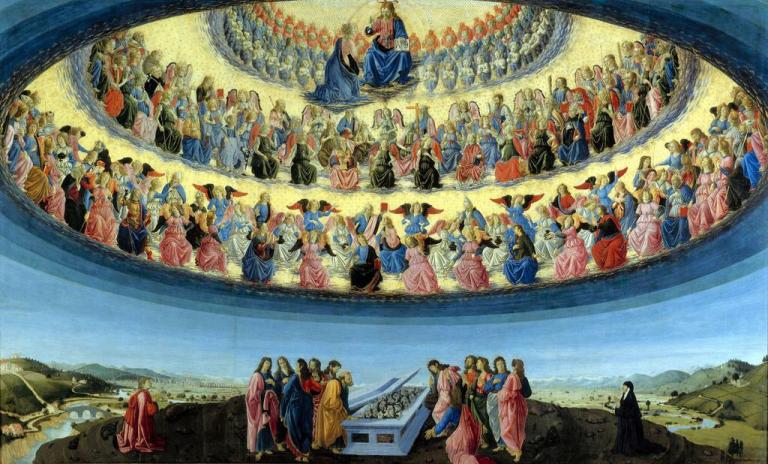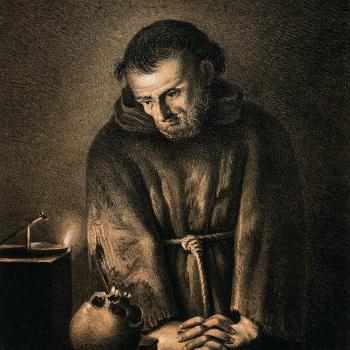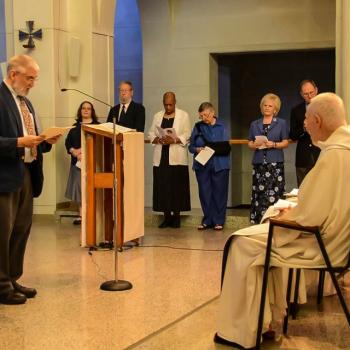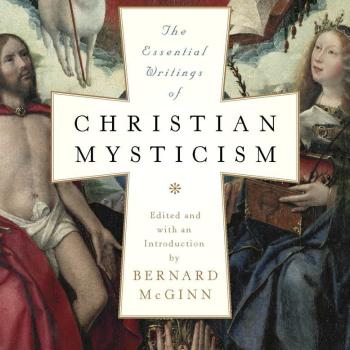This post is a sequel to my post from last week called How to Find a Mystical Teacher.
The person who originally wrote to me, responding to that post, in which I argued for the importance of embedding our quest for mystical training with engagement in a community of faith. She wrote:
I do attend a local church. After a long search, I have found a church home in the Episcopalian Church (ECUSA). And, I do study the Bible. I grew up in a family where going to church on Sunday was a regular thing. Sunday school is where I acquired my first learning in the Bible; my understanding of the Bible has developed, over the years. I see what you mean by activism. Many of the well known mystics were activists, like Teresa of Avila, Francis of Assisi, and many others that you mention in your book.

And now, my further thoughts for her (and for anyone else seeking guidance in Christian mysticism)…
As you can imagine, many people who write to me asking for a “mystical teacher” are not at all connected to the tradition, and they don’t want to do the work that is entailed with participating in a faith community (whether it’s a traditional parish or some other configuration). So I’m happy to hear that’s something you already are engaging in.
A common complaint I hear from folks is “but my church doesn’t get mysticism!” Sadly, that’s often the case. Depending on how long ago your priests went to seminary (and which seminary they attended), they could actually have a negative view of mysticism, seeing it as needlessly escapist or narcissistic or anti-rational. At its extremes mysticism can be all those things, but the heart of authentic Christian mysticism is about something else entirely: cultivating a meaningful and conscious relationship with God, that becomes a source of grace and joy and strength in our lives.
I think it is wise to look toward monastics for guidance, but I think approaching well-known monks or nuns, such as authors, is usually a waste of time, not because authors themselves are bad (although authors are human too, which means no one is perfect), but because generally they are simply too busy to provide one-on-one spiritual guidance.
So I think your best bet is to do one or both of these approaches:
First approach: Find a monastery near you where you can make a retreat and do so, and talk to the guestmaster there about spiritual mentoring. I’d recommend visiting a monastery/convent that corresponds to your own gender identity, as some monastics only like to direct people of the same gender. Also, it may be wise to visit monasteries that are in the same church or ecclesial community that you are in; so if you’re Catholic, go to a Catholic monastery; if you’re Episcopalian or the member of a Reformed/Protestant Church, visit an Anglican or ecumenical monastery. This isn’t a hard and fast rule, of course, but I think it’s helpful to make a retreat in a setting where you are in communion with the residents monastics. However, don’t be shy about visiting a Catholic or Orthodox monastery, even if you are Anglican or Protestant. Most monks and nuns are very welcoming to people outside their church, and while they may not be able to invite you to communion, in every other aspect of the monastic life you will probably find that you are welcomed with open arms.
When interviewing a sister or a brother to be your spiritual director, be sure to tell her up front that you are interested in learning about Christian mysticism and you want to cultivate a contemplative relationship with God. Try to avoid saying “I want to be a mystic” or “I want God to make me a mystic.” Frankly, most spiritual directors would see that as a red flag: indicating someone who is more interested in mysticism than in God! And notice how you react to what I’ve just written: if, in your heart, you are more interested in mysticism than in God, that doesn’t make you a bad person, but it’s something to pray about. “Seek first the kingdom of heaven, and all these other things will be added afterward.”
Just because a nun or religious sister is not known as an “authority on mysticism” doesn’t mean you won’t get the best guidance. Because, ultimately, the guide you seek is the Holy Spirit. Your “human” spiritual director, whether a monastic or a layperson, is there to assist the Holy Spirit, who is truly your director into the mysteries. So what’s most important is that your guide be herself a serious and committed person of prayer, a good listener, and someone with a good heart.
Second approach: If finding a monastic director doesn’t work out for you, then once again I refer you to Spiritual Directors International. You’ll find many people listed there who have received formation in the art of spiritual guidance and/or spiritual companionship. This covers all Christian denominations and even non-Christian spiritual guides, so you’ll need to do your homework to make sure the person you end up working with is compatible with you, both in terms of their background but also in terms of their language and their understanding. You might have to interview several persons before you find the guide who clicks with you. See it as an adventure! Once again, be upfront about your interest in the mystics but resist the temptation to call yourself a mystic or saying mysticism is what you want.
Try to keep your yearning and your desire God-centered. That will be a big help both for you and for finding the right director.
I hope all this is helpful! Thank you for reaching out to me.
Enjoy reading this blog?
Click here to become a patron.
Stay in touch! Connect with Carl McColman on Facebook:














